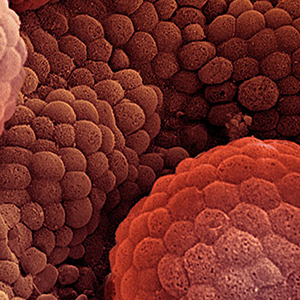The Cutting Edge of Medical Technology Content, Community & Collaboration
One in every seven men in the United States will get prostate cancer, making it the second most common type, after skin cancer, for American men. It tends to be a slow-growing disease, but can sprint to life-threatening severity if detected too late. Screening for prostate cancer can yield false-positive findings, but those most at risk for the disease—men whose father or a brother had prostate cancer, African American men, overweight men, and those in their 60s and 70s who are in good health and could expect years more of life—still should ask their doctors whether screening makes sense for them.

The website for the Shipley Prostate Cancer Research Center provides basic information about the prostate gland and how disease affects it.
That information comes from the just-launched website of the Shipley Prostate Cancer Research Center at the School of Medicine. Created with a $10.5 million gift from BU trustee Richard Shipley (Questrom’68,’72), the center’s labs will be in the Conte Building on the Medical Campus when it opens. The center’s research will be focused on finding genomic approaches to determine which prostate cancers are aggressive and need treatment, and which can simply be monitored.
The center’s website and its Facebook page and Twitter account are up and running now, offering easy-to-follow, impartial information on practically everything anyone needs to know about prostate cancer. There’s “Prostate 101,” an overview about the prostate, information about prostate cancer and getting a second opinion, and a checklist of symptoms; information on screening; treatment options; and the state of research.
This knowledge is available to patients everywhere, “irrespective of where they choose to get their medical care or where they are in terms of testing, diagnosis, or treatment,” says site editor Gretchen Gignac, a School of Medicine associate professor of hematology and medical oncology.

Most cases of prostate cancer are slow-growing tumors that have a very high cure rate, but some cases are fast-growing.
For its founding donor, the center is as much a beacon of information to patients as an incubator for medical research. Shipley was diagnosed with prostate cancer in 2014 and chose focal laser ablation, a new and less invasive treatment than surgery and other therapies.
“The website will be unique in that it will provide up-to-date information, both on diagnostic and treatment options, in a form the layman can easily understand,” Shipley says.
Read More: http://snip.ly/olj5q#http://www.bu.edu/today/2017/shipley-center-we...
Views: 10
Comment
© 2024 Created by CC-Conrad Clyburn-MedForeSight.
Powered by
![]()
You need to be a member of MedTech I.Q. to add comments!
Join MedTech I.Q.